 Today’s guest post comes to us by way of Heidi Massey. Heidi is a nonprofit consultant with a passion for strategic networking, leadership development and creating meaningful educational and service-based programs and collaborations. For more on Heidi, check out her blog.
Today’s guest post comes to us by way of Heidi Massey. Heidi is a nonprofit consultant with a passion for strategic networking, leadership development and creating meaningful educational and service-based programs and collaborations. For more on Heidi, check out her blog.
Every time I meet someone who tells me he/she is a fundraiser, my shoulders tighten, my teeth clench and I brace for conflict. This is probably not the politically correct response, particularly in today’s economy, where organizations are more desperate than ever for funding. However, in my very first job out of graduate school, I was in the trenches of a very heated battle between the program staff and the fundraising staff. Since then, I have shared many a knowing glance with another nonprofit program professional while we are engaged in conversation with a fundraiser.
Like intellectual snobs from an Ivy League school, we know that the work we do for any organization is what is important and meaningful in the nonprofit world. Fundraisers don’t really get it. They are all about the money and we program people…well, we generally aren’t.
However, maybe it is time for some meaningful dialogue on this area of conflict for many nonprofit organizations. Although I am not a fundraiser, I suspect that there are many who have also shared knowing glances with other fundraisers while in conversation with a nonprofit program professional. They too, are convinced that what they are doing is the most important work of the organization because without them, the organization cannot survive. Realistically though, organizations only thrive when both the program and fundraising professionals are skillfully executing their responsibilities. So what is it then, that causes conflicts between these two groups?
Perhaps the conflict arises from the types of people who are attracted to the different positions. Are there skills that are important for a program professional or a fundraising professional that put the two groups at odds with each other? Or are the goals of their departments at odds with what each wants to accomplish? Is there any connection between this division and what many have observed between small/medium sized organizations and large organizations? Perhaps it is a combination of all of the above…
While researching conflict between program and fundraising professionals, I came across an audio webinar by two fundraisers. Although the webinar was aimed at fundraising professionals, I was taken aback by how defensive I felt while listening. It seemed to me that the blame for conflict was placed squarely at the doorsteps of the program professionals, in spite of the speakers’ repeated statements that this was not the case. The explanation sounded to me like fundraisers know best, but need to be patient while the programming staff learns what the fundraisers already know. I am certain that it wouldn’t be atypical for program professionals to create a webinar that would cause the same reaction in fundraising professionals.
There is an alarming lack of transparency about this issue. There hasn’t been much discussion about the conflict between fundraisers and program professionals. Talk about the elephant in the room! Even google was just about empty of relevant links.
However, I have had enough conversation with other program professionals to know this is an issue, at least for some people. Professionals from both groups revel in their superiority and neither seems to have any motivation to create a more collaborative environment. Is there something to be gained by this? Sounds a bit like the cliques we all survived in high school. It is much easier to stereotype those who are different and to cling to our own kind. But the elephant is a symbol of a dysfunctional organization. Unfortunately, that dysfunctional elephant keeps growing until you deal with it directly. Perhaps now, with difficult financial times and some maturing of the nonprofit sector, we are ready for a real conversation about the value of truly working collaboratively within organizations. As we begin to understand and respect the roles of others inside our organizations, we may also be able to minimize turf issues related to our own roles. And in my perfect world, as we begin to eliminate turf issues within our organizations, perhaps we will become more open to collaboration with those outside of our organization. Ultimately, the turf issues that arise from conflicts between fundraising and program professionals do not merely undermine our ability to function as thriving organizations. They undermine our ability to function as a thriving community.
Would you like to be featured on Pamela’s Grantwriting Blog? Email me for blog submission guidelines.
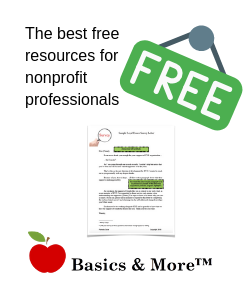
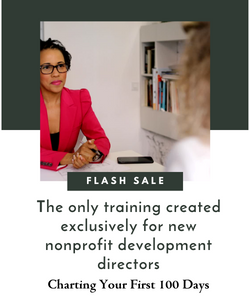
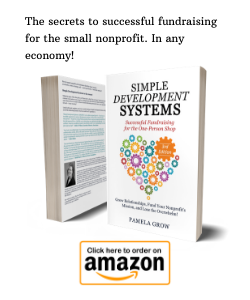
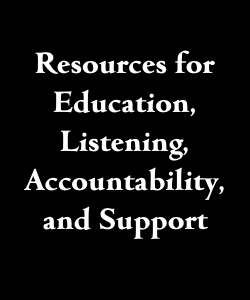
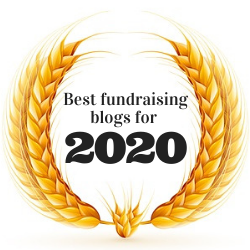

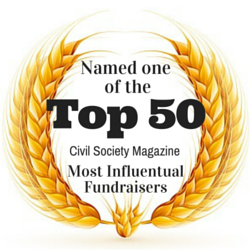
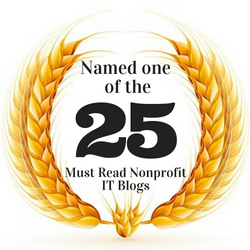

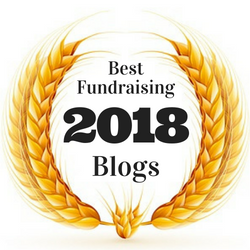

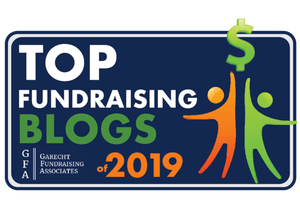
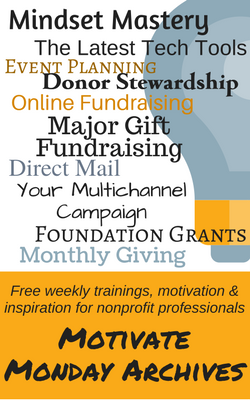

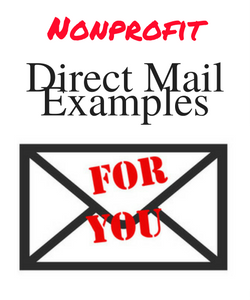


 I can’t wait to meet with you personally.
I can’t wait to meet with you personally.
Comments on this entry are closed.